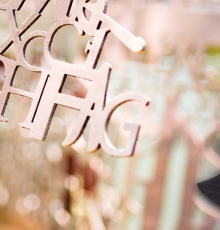Categories
Envisioning Europe: EU and Democratic Experimentation

The European Union (EU) has been a remarkable experiment in multi-level governance, economic integration and multilateral diplomacy. However, it has also exemplified an important if not courageous democratic experiment. Never before has an equally ambitious democratic project been attempted beyond a nation state. Professor Jan Zielonka will try to assess the success and failure of this experiment. Although the European Parliament has acquired more powers in recent treaties, the EU’s legitimacy has not visibly increased. Member States still see themselves as guardians of democracy, yet they are using the EU to evade parliamentary scrutiny within their own respective borders. European election have elevated ever more Eurosceptic MEPs with tangible influence to power. Democracy needs to envisage a considerable degree of citizens’ participation, but lobbyists seem to have greater access to EU institutions than NGOs, let alone ordinary citizens. Perhaps the system of parliamentary representation is not well suited to a vast multi-national and multi-level actor such as the EU. In a polity with diverse cultures and political loyalties, it is hard to develop democracy through institutional engineering alone. Professor Zielonka will propose an alternative democratic path for the EU that will empower citizens through novel forms of contestation, participation and representation. He will argue why a Europe of networks demands a different form of democracy than the Europe of states.
Register here for this online event
Jan Zielonka is Professor of Politics and International Relations at the University of Venice, Cá Foscari and at the University of Oxford. His previous appointments included posts at the University of Warsaw, Leiden and the European University Institute in Florence. His work oscillates between the field of international relations, comparative politics and political theory. Zielonka has produced eighteen books including Counter-revolution. Liberal Europe in Retreat (Oxford University Press, 2018, awarded the 2019 UACES prize for the best book on Europe and translated into several languages), Politics and the Media in New Democracies: Europe in a Comparative Perspective (Oxford University Press, 2015), Is the EU doomed? (Polity Press, 2014), and Europe as Empire. The Nature of the Enlarged European Union (Oxford University Press, 2006). Zielonka regularly contributes articles to Die Zeit, The New Statesman, Social Europe, Open Democracy, Il Fatto Quotidiano, L’Espresso, NRC Handelsblad, Diário de Notícias and Rzeczpospolita.
Moderation by Prof. Ludger Kühnhardt, Director at the Center for European Integration Studies (ZEI) at Bonn University and Professor of Political Science at the University of Bonn. He has extended political and academic consultancy experience, including for the Secretary General of the Council of Europe, the President of the European Parliament, the Parliament of the West African Economic Community (ECOWAS), the West Africa Institute (WAI), the European Humanities University and the German Catholic Bishops’ Conference.
Introduction by Dr. Constanze Itzel, Museum Director of the House of European History.
In the light of the Conference on the Future of Europe, the House of European History (HEH) is organising an online lecture series entitled ‘Envisioning Europe.’ From 22 June 2021 to 19 July 2022, the museum will share its floor with 12 prominent historians to exchange insights into Europe past and present. Voices from outside Europe will also contribute to contextualising this dialogue with external perspectives. Each lecture includes a moderated Q&A session.








